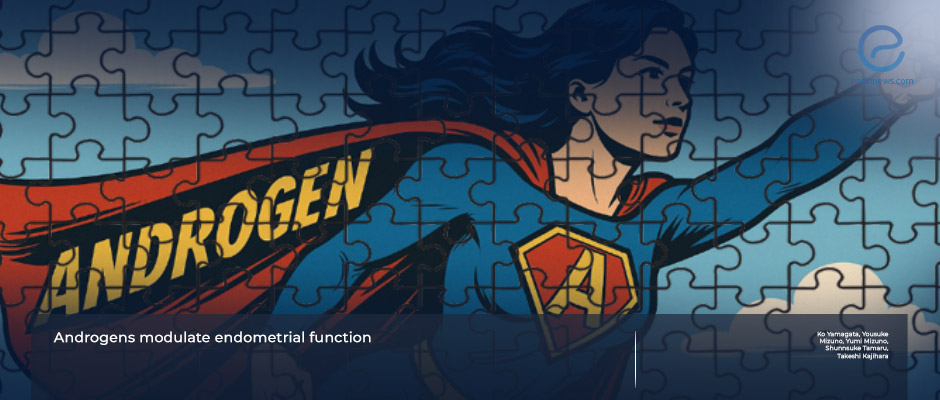Revisiting the Role of Androgens in Endometriosis Pathology
May 9, 2025
Androgens contribute to endometrial physiology and pathologies.
Key Points
Highlights:
- The function and regulation of androgens in the endometrium remain incompletely understood.
- Androgens may influence endometrial receptivity, implantation, and the development of pathologies such as endometriosis.
Importance:
- Androgen signaling disruption in endometrium may contribute to reproductive disorders, including infertility, implantation failure, and recurrent miscarriage.
- The association between elevated androgen activity and endometriosis suggests a possible pathogenic role requiring further investigation.
What's done here:
- This is a narrative review conducted by researchers from Saitama Medical University, Japan.
- The authors examined studies from PubMed and Google Scholar published up to March 31, 2024.
- The review outlines the roles of androgens in normal endometrial physiology, implantation, and reproductive pathology.
Basic Outlines:
- Androgens are produced by the testes, ovaries, and adrenal glands, and metabolized into various active/inactive forms.
- AR is highly expressed in stromal endometrial cells, and its activation regulates multiple genes (e.g., IGF-1, erythropoietin, succinate dehydrogenase).
- Androgen signaling supports decidualization of the endometrial stroma during the secretory phase.
- Disruption in AR expression is linked to repeated pregnancy loss, PCOS, and endometriosis.
- Testosterone concentrations in ectopic lesions are significantly higher than in healthy controls.
- Androgens also regulate gene expression implicated in oncogenesis (e.g., in prostate, breast, and ovarian cancers).
FROM THE EDITOR-IN-CHIEF
This review by Yamagata et al. draws overdue attention to a long-overlooked question in reproductive science: what role do androgens play in endometrial health and disease? By connecting hormonal signaling with implantation, miscarriage, and conditions like endometriosis, the authors challenge us to think beyond the traditional estrogen–progesterone model.
Their call for deeper investigation into androgen regulation in the endometrium is timely, and well worth pursuing.
Lay Summary
In In a typical menstrual cycle, the endometrium is regulated by hormones like estrogen and progesterone. After ovulation, rising progesterone levels help the endometrial stroma transform into a receptive state, allowing a fertilized embryo to successfully implant. This process, called endometrial receptivity, is essential for pregnancy.
The influence of androgens, commonly known as male hormones, on the female reproductive system is less understood. In a recently published review in Medical Molecular Morphology, the research team led by Dr.Kajihara from Saitama Medical University in Japan explore the role of androgens in endometrial function and disease.
The review highlights how androgen receptors (AR)—proteins that bind and respond to androgens—are found in the stromal layer of the endometrium. Once activated, these receptors regulate genes involved in various physiological and pathological processes. While androgens are essential for male sexual development, they also influence female reproductive health, including processes like decidualization, implantation, and potentially miscarriage.
The authors point out that altered androgen signaling may contribute to infertility in conditions such as polycystic ovary syndrome (PCOS) and endometriosis. In PCOS, excess circulating androgens are linked to poor implantation and increased embryo loss. In endometriosis, higher testosterone levels have been found in ectopic lesions compared to healthy tissue.
Although growing evidence supports a role for androgens in both healthy and diseased endometrium, many questions remain. The authors call for further basic and clinical research to better understand how androgens are regulated in the uterus, and how they may affect fertility and gynecologic disease.
Research Source: https://pubmed.ncbi.nlm.nih.gov/40063300
androgens testosteron decidualization endometrium ovulation implantation blastocyst endometrial cancer endometriosis.

